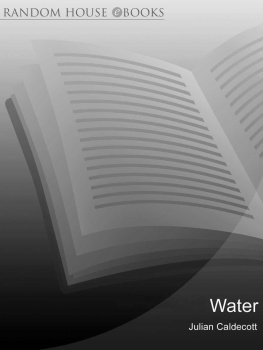Droughts. Flooding. Climate change. Fracking. Agricultural runoff. Industrial waste. Oil spills.
The perils to the global fresh-water supply have never been so clear or so numerous. Visible and pressing problems have brought this critical issue to the forefront of public consciousness, but the current political discourse around water seems to offer few solutions. In dozens of countries, ordinary citizens have cause to worry about what (or how much) will come out of their taps if they even have taps and who will make sure it is available, affordable, and safe.
Fifteen years after the publication of Water, an influential book on the state of the global water supply, Marq de Villiers returns with this refreshing examination of the fate and future of the worlds most precious and contested resource, fearlessly taking on some of the biggest questions and shibboleths of the century. Who owns water? Is access to water a human right? Who is responsible for keeping water clean and ensuring that it gets to the people who need it most? Is privatization of water an evil or an extension of the public trust?
Examining how political ideologies often obscure the underlying issues, de Villiers makes the controversial suggestion that there is no global-scale water crisis. Instead, he concludes that there are thousands of smaller local and regional crises that can most effectively be addressed through local actions rather than prescriptive global solutions.
Back to the Well
Also by Marq de Villiers
Our Way Out
Dangerous World
Timbuktu
Witch in the Wind
Windswept
A Dune Adrift
Sahara
Water
Into Africa
Blood Traitors
Down the Volga
The Heartbreak Grape
White Tribe Dreaming

Copyright 2015 by Jacobus Communications Corp.
All rights reserved. No part of this work may be reproduced or used in any form or by any means, electronic or mechanical, including photocopying, recording, or any retrieval system, without the prior written permission of the publisher or a licence from the Canadian Copyright Licensing Agency (Access Copyright). To contact Access Copyright, visit www.accesscopyright.ca or call 1-800-893-5777.
Edited by Susan Renouf.
Cover and page design by Chris Tompkins.
Lyrics from Dress Rehearsal Rag by Leonard Cohen
copyright 1970 Stranger Music, Inc. Used by permission.
Library and Archives Canada Cataloguing in Publication
De Villiers, Marq, 1940-, author
Back to the well : rethinking the future of water / Marq de Villiers.
Includes bibliographical references and index.
Issued in print and electronic formats.
ISBN 978-0-86492-075-1 (bound).--ISBN 978-0-86492-802-3 (epub).--ISBN 978-0-86492-572-5 (mobi)
1. Water-supply. 2. Water-supply--Forecasting. I. Title.
HD1691.D46 2015 333.91 C2015-901855-2
C2015-901856-0
We acknowledge the generous support of the Government of Canada, the Canada Council for the Arts, and the Government of New Brunswick.
Nous reconnaissons lappui gnreux du gouvernement du Canada, du Conseil des arts du Canada, et du gouvernement du Nouveau-Brunswick.
Goose Lane Editions
500 Beaverbrook Court, Suite 330
Fredericton, New Brunswick
CANADA E3B 5X4
www.gooselane.com
By means of water we give life to everything.
The Quran
Oh! Im so glad!
Pollyanna
Contents
An Assertion
Have we really reached peak water, the point at which the renewable (and safe) supply is forever outstripped by unquenchable demand? Or was Pollyanna right to be glad, and our water woes can be fixed by clever management?
Sure, its true, as a recent UN report put it, that global water use has grown at more than twice the rate of the worlds population for the last century, and its true that we are drawing down, or overdrafting, many of our water resources at a rate that is unsustainable, and its true that we are still polluting water that we should have cleaned up decades ago. But no, were not necessarily doomed, and this book will explain why.
A Second Assertion
Looked at one way, the water crisis is global. Looked at more closely, the crisis splits into two intersecting and overlapping crises: the crisis of supply (shortages) and the crisis of contamination (pollution). Looked at more correctly, there are no global-scale crises. Instead, there are a thousand smaller regional and river-basin crises, only some of which intersect or overlap with the others, and there are, in fact, still many places without crises at all. This makes water problems more tractable easier to solve, not harder. This book will delve into that too.
And a Third
If we can avoid the most deeply irrelevant ideological quarrels to which the water world is so prone (the notion of a callous Big Water cartel that would reserve clean water for the rich, paranoia about bulk water transfers from us to them, polemics against dams, quarrels over whether water should be defined as a human right), a wide range of techniques will take us very close to solution. Except in spots, of course. Some places are harder. We will need to examine those.
And One More
Whats wrong with privatization? No, really... whats wrong with it?
And a Victim Impact Statement
A Spanish hydrologist, Ramn Llamas Madurga, a contrarian by nature, not long ago annoyed a UNESCO water conference (called Water: The Looming Crisis) by saying, Why are we always proclaiming that crisis is looming, and yet it never actually looms? With water, we have seemingly been standing on the edge of the cliff of catastrophe for decades, yet we never seem to fall into the abyss.
He was suggesting, to grumbles from the audience, that the notion of crisis might be alarmist. Alarmist and, therefore, unhelpful.
But he was looking, I think, in the wrong places, and at the wrong scale he was looking for a single, identifiable, overweening global crisis. In many parts of the world, there is no such thing. In others, they have already stumbled over the edge.
For some, it may be too late. But for others, there is still time for a lifeline.
People who write about population policy sometimes forget that population is just people in the aggregate: men, women, children, and families going about the business of living their lives, with all their hopes and fears and dreams. Just so, people who write about the water crisis, including me, too often fail to consider the actual people whose precious water is poisoned, or scarce, or both ordinary people who sometimes have to walk great distances to fetch water that is often unclean; people who do it because they must, because without it they cannot survive. We need to remember these people.
The criminal justice system, at sentencing hearings for offenders, allows what it calls Victim Impact Statements from, or about, those most affected. So here is one, about Manya, the senior woman of a household in a small village near the town of Narok in Kenya.
The villagers were members of the Gabbra tribe. I wrote about Manya more than a decade ago, after her family sheltered me from a ferocious riot that had broken out between a group of over-exuberant Maasai warriors and the Kenyan security police. The context of the anecdote was not the riot, however, but water it described how Manya and her daughters set out, on foot, to fetch water from the nearest well, three kilometres away. Later that evening, the women returned, each with a fifteen-litre pail balanced on her head. They swayed down the trail, singing one of their working songs to pass the hours, as they had done that morning, and as they would do on the days that followed, and as they expected to do, if they thought about it at all, forever. A little later we ate corn mash and fried banana, and sucked on mangos. I declined the water, partly out of politeness and partly out of fear. The well was an old one and had originally been used by fifty families. Now, four times as many drew water from it, and they had to go down further every year. A few months earlier, Manya said, men had descended into the well and had deepened it by two metres or so. The water the buckets brought up was muddy and smelled rank. But they had to drink it, for there was no other. They couldnt clean it, for they had no money. They couldnt boil it, for they had no fuel. They had no choice, and no way to choose.
Next page
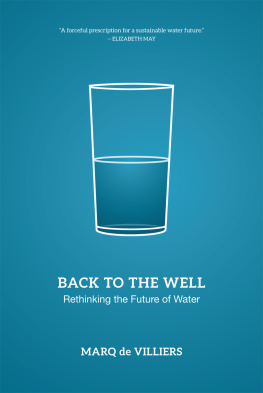
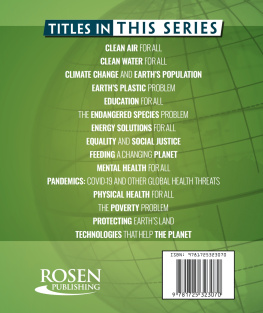

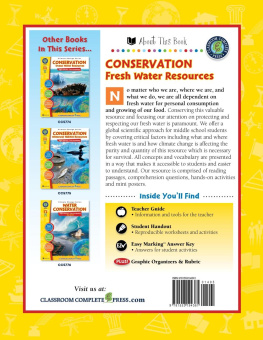

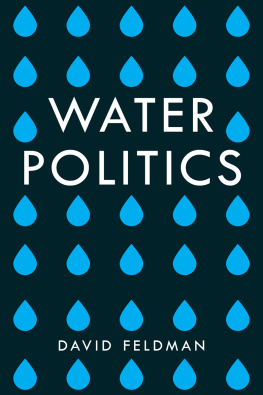
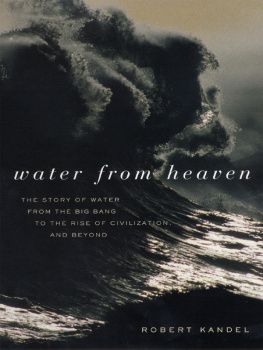
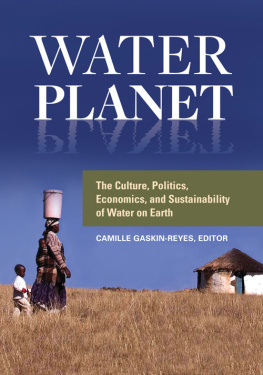
![David E Newton] - The global water crisis : a reference handbook](/uploads/posts/book/104432/thumbs/david-e-newton-the-global-water-crisis-a.jpg)
